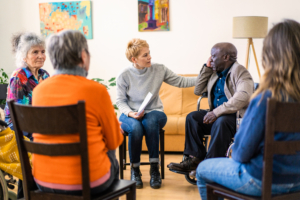Decoding Nursing Home Abuse: Unveiling its Legal Ramifications
Nursing home abuse is an unfortunately prevalent issue in healthcare that affects thousands of nursing home residents and seniors every year. Often, understanding what qualifies as abuse and the legal avenues available for recovering can be complicated.
What is Nursing Home Abuse?
To start, nursing home abuse is not just a physical form of elder abuse, but rather, it can take many other forms, including mental abuse, emotional mistreatment, sexual abuse, and even financial abuse from nursing home staff or a failure to provide resident care when abused by visitors or other residents. Common signs of abuse include unexplained injuries, sudden behavioral changes, fear or anxiety around caregivers, unexpected financial transactions, and poor hygiene or unattended medical needs. When visiting family members in a nursing home or care facility, it is important to be on the lookout for signs of potential abuse and to take any allegations of abuse seriously.
Nursing home abuse can even take place when home care is used. Nurses and nurse aides, home care providers, and other at-home providers can contribute to various forms of abuse. Though this is less common, elderly individuals and geriatrics, disabled individuals, or people with memory impairment such as Alzheimer’s disease are particularly vulnerable.
Nursing home abuse, no matter where it occurs, can lead to a decreased quality of life, mental health issues, physical pain and suffering, and even death.
Legal Implications and Recourse
The legal implications of nursing home abuse are far-reaching. State laws govern the operation of nursing homes, and these laws require them to provide a certain standard of care. When this standard is breached, it could result in a lawsuit for negligence or even criminal charges. The Nursing Home Reform Act of 1987 is a federal law that mandates the quality of care and provision of services that attain or maintain the highest practicable physical, mental, and psychosocial well-being of each resident.
Litigios civiles
Civil lawsuits are one way that victims and their families can receive compensation. Damages may cover medical expenses, pain and suffering, loss of enjoyment of life, and in particularly egregious cases, punitive damages may also be awarded.
Law Enforcement Involvement
If you have evidence of abuse in a nursing facility of long-term care facility, it is important to notify law enforcement of the potential issues. Different states their own ways to report such abuse. In Maryland, suspected abuse can be reported to the Department of Aging, in Virginia, it can be reported to the Department of Health Professions’ Enforcement Division, and in Washington, DC, it can be reported to the Department of Health.
Speak with an Elder Abuse Attorney
For families suspecting nursing home abuse, it’s crucial to gather evidence, report suspicions to the authorities, and consult with an experienced attorney who can guide through the legal process. Working with an attorney helps you to establish your case with authorities and to begin the process of recovering damages for your loved ones. Contact Dross Berman for a free consultation and to discuss your case. Remember, your loved ones have a right to dignity, respect, and proper care.



